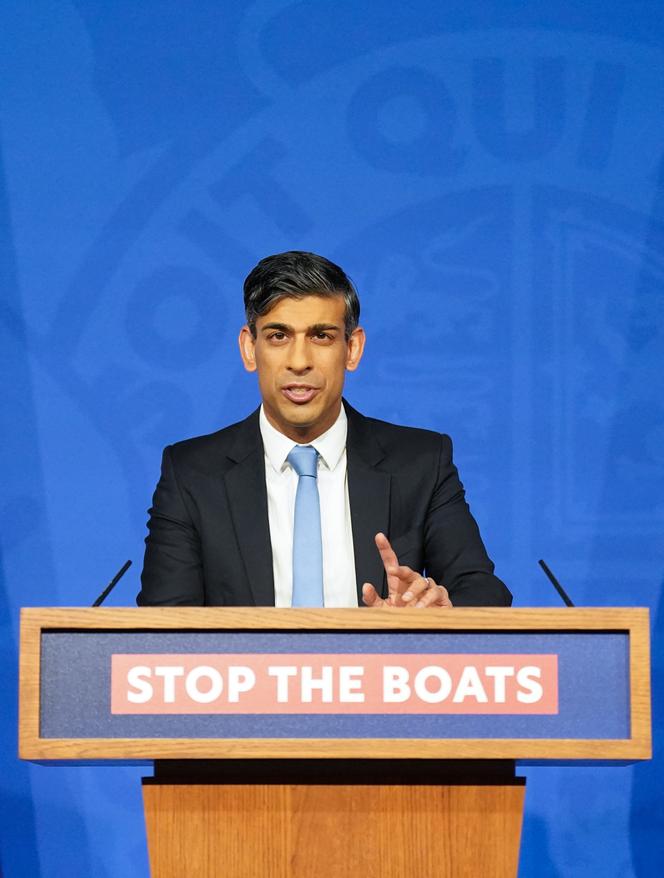


In British parliamentary jargon, it's called "ping-pong." A difficult showdown between the House of Commons and the House of Lords began on Wednesday, March 20, behind the Palace of Westminster's thick walls. Led by Labour members and a handful of bishops (members of the upper house by virtue of their positions), the Lords are attempting to soften the terms of the Safety of Rwanda Bill, aimed at deporting asylum seekers to Rwanda. With parliament in recess for a fortnight from March 26, the bill will return to the Commons in mid-April, where, given the Conservative majority, the Lords' amendments are likely to be rejected.
This "ping-pong" will last until the government gives way or, more likely, the Lords give in, as the upper house does not have the final say on bills. The Conservative prime minister, Rishi Sunak, wants the bill to be passed so that planes can take off for Rwanda as early as "this spring."
His ambition has become largely symbolic. If the British media are to be believed, only 150 to 200 asylum seekers have been identified by the Home Office to be sent to Rwanda, where a single hotel, the Hope Hostel, in the capital Kigali, is ready to accommodate them. But the Tories are losing ground in the polls and these flights to the East African country appear to be Sunak's last hope of avoiding defeat in the autumn general election. If the Safety of Rwanda Bill is passed, and if the planes are not grounded by a final appeal to the courts, their passengers will be the first to be forcibly displaced under the famous "Rwanda" agreement, announced two years ago. However, the agreement is still not operational because it has turned into a political and legal saga.
April 14, 2022: Downing Street's resident was still called Boris Johnson. The leader, embroiled in the "partygate" scandal (which would cost him his job a few months later), triggered surprise by unveiling an agreement with Rwanda. The country was ruled with an iron fist by President Paul Kagame, still scarred by the 1994 genocide, but enjoying strong economic dynamism. The aim was to deport people arriving in the UK illegally (without visas, who had arrived by small boat or hidden in lorries). They would only be able to claim asylum in Rwanda, where their applications would be assessed. The UK was the first European country to attempt a complete delegation of its responsibilities in asylum application procedures.
With this agreement, the result of nine months of negotiations with Kigali, Johnson swore that the aim was to fight against the smugglers who have "caused far too much human suffering and tragedy," after 27 people drowned in the English Channel in November 2021.
You have 75.72% of this article left to read. The rest is for subscribers only.
